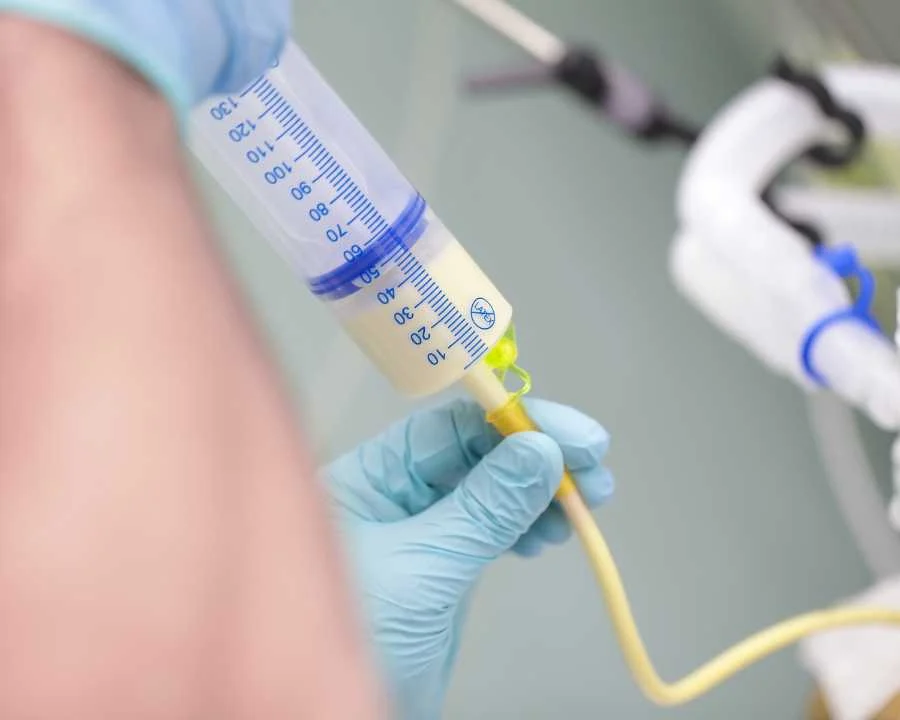In the realm of healthcare, specialized training is crucial for professionals to provide optimal care to patients. Peg feed training, also known as percutaneous endoscopic gastrostomy feeding, is one such area of expertise that healthcare assistants and other medical personnel need to master. This article delves into the significance of peg feed training, alongside insights into healthcare assistant training and asthma management.
Table of Contents
Importance of Healthcare Assistant Training
Healthcare assistants play a pivotal role in patient care across various healthcare settings. Comprehensive training equips them with essential skills and knowledge to assist patients effectively. From basic caregiving tasks to specialized procedures like peg feed administration, training ensures that healthcare assistants can deliver high-quality care while upholding safety standards.
Understanding Asthma Training
Asthma is a prevalent respiratory condition that requires proper management and understanding. Training programs focusing on asthma educate healthcare professionals about the condition’s causes, symptoms, and treatment options. With adequate training, medical personnel can confidently address asthma-related emergencies and provide optimal care to patients.
The Basics of Peg Feed Training
Peg feed training encompasses a range of skills, including the administration of enteral nutrition through a percutaneous feeding tube. This training covers various aspects, such as tube insertion, feeding techniques, troubleshooting common issues, and ensuring patient comfort and safety. Proficiency in peg feed training is essential for healthcare professionals involved in caring for patients who require enteral nutrition support.
Benefits of Peg Feed Training
Proficiency in peg feed training offers numerous benefits for both healthcare providers and patients. It enables efficient and safe administration of nutrition, reduces the risk of complications, promotes patient comfort, and enhances overall quality of care. Additionally, trained healthcare professionals can effectively educate patients and caregivers about peg feeding, ensuring proper adherence and management at home.
Key Components of Healthcare Assistant Training
Healthcare assistant training encompasses various essential components, including basic caregiving skills, infection control practices, medication administration, and specialized procedures like peg feed management. These training programs aim to equip healthcare assistants with the knowledge and skills necessary to provide holistic care and support to patients in diverse healthcare settings.
Addressing Asthma: Importance of Training
Effective management of asthma requires a multidisciplinary approach, with trained healthcare professionals playing a vital role. Asthma training programs educate medical personnel about asthma triggers, medication management, inhaler techniques, and emergency response protocols. Through comprehensive training, healthcare professionals can empower patients to manage their condition effectively and improve their quality of life.
Step-by-Step Guide to Peg Feed Training
Mastering peg feed training involves understanding the procedural steps involved in administering enteral nutrition. This includes assessing the patient’s nutritional needs, preparing the feeding formula, ensuring proper tube placement, monitoring for complications, and providing ongoing support and education to patients and caregivers. A step-by-step approach ensures safety and effectiveness in peg feed administration.
Role of Healthcare Assistants in Patient Care
Healthcare assistants play a crucial role in supporting patient care across various healthcare settings, including hospitals, nursing homes, and home care environments. Their responsibilities may include assisting with activities of daily living, monitoring vital signs, providing emotional support, and ensuring patient comfort and safety. Through training and ongoing education, healthcare assistants contribute significantly to positive patient outcomes.
Managing Asthma Attacks: Training Considerations
Asthma attacks can be life-threatening if not managed promptly and effectively. Training programs focus on equipping healthcare professionals with the skills to recognize early signs of an asthma attack, administer appropriate medications, and initiate emergency protocols when necessary. Training considerations also include educating patients about asthma triggers and self-management strategies to minimize the risk of exacerbations.
Challenges and Solutions in Peg Feed Training
While peg feed training offers numerous benefits, healthcare professionals may encounter challenges in mastering this skill. Common challenges include technical difficulties during tube insertion, complications such as tube dislodgement or blockage, and patient discomfort or resistance. Solutions involve thorough training, ongoing support and education, and collaboration with multidisciplinary teams to address complex cases effectively.
Enhancing Patient Safety Through Training
Patient safety is paramount in healthcare, and training programs play a crucial role in promoting safe practices and minimizing risks. Training in peg feed management emphasizes adherence to safety protocols, proper technique demonstration, and regular competency assessments to ensure proficiency among healthcare professionals. By prioritizing patient safety, healthcare organizations can enhance the quality of care and reduce adverse events.
Advanced Techniques in Healthcare Assistant Training
As healthcare evolves, continuous learning and skill development are essential for healthcare assistants to stay abreast of advancements in patient care. Advanced training programs may cover specialized procedures, such as wound care, catheterization, and medication management, enabling healthcare assistants to expand their scope of practice and deliver comprehensive care to patients with diverse needs.
Promoting Asthma Awareness in the Community
Community outreach and education play a vital role in raising awareness about asthma and promoting preventive measures and early intervention strategies. Healthcare professionals can engage in community events, school programs, and public health campaigns to educate individuals about asthma triggers, symptoms, and management strategies. By fostering asthma awareness, communities can work together to reduce the burden of this chronic condition.
Conclusion: Empowering Healthcare Professionals
In conclusion, peg feed training, healthcare assistant training, and asthma management are integral components of healthcare education and practice. By investing in comprehensive training programs, healthcare organizations can empower professionals to deliver high-quality care, enhance patient safety, and improve health outcomes. Continuous learning and skill development ensure that healthcare professionals remain proficient in their roles, ultimately benefiting patients and communities alike.

